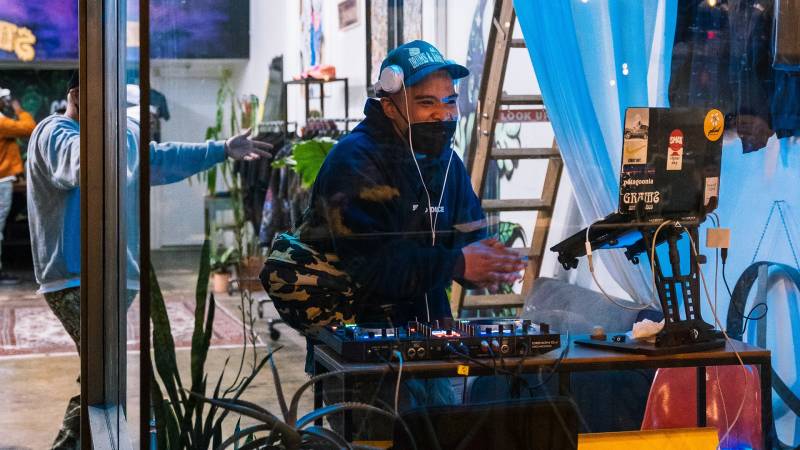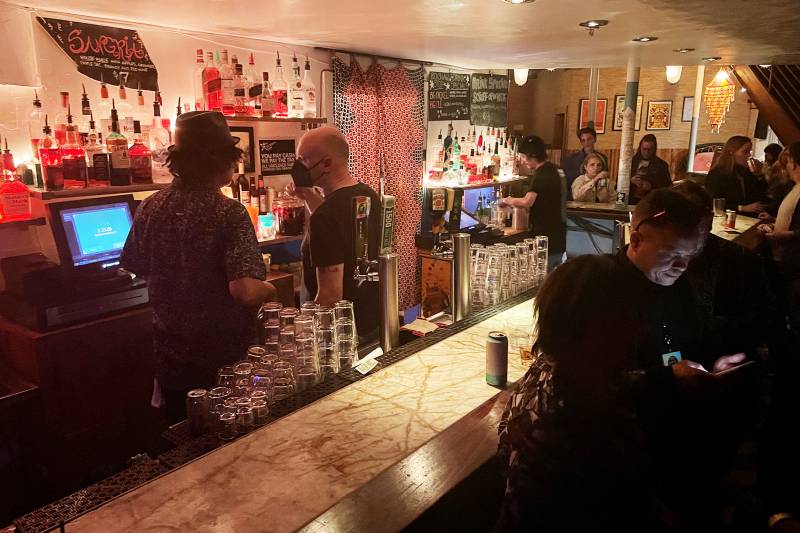Like most performing artists, Lil Thow Wow couldn’t wait to get back out there. The Oakland DJ, real name Jonathan Anabo, had to put a pause on gigs during the COVID-19 shutdown. Once he was fully vaccinated, and Governor Gavin Newsom lifted California’s restrictions in June, Anabo began spinning records at local bars and venues again.
But a wake-up call came earlier this month when he started feeling sick and tested positive for COVID-19. He knows of several other breakthrough cases among vaccinated people in his circle. Indeed, COVID cases are rising nationally and in the Bay Area.
Fully vaccinated people tend to experience fewer, less severe symptoms, and they typically don’t require hospitalization. Still, the trend has alarmed health experts, and California public health officials once again recommend masking, regardless of vaccine status, in all indoor public settings.
“Ever since they dropped the mask mandate and were more lax about it—I feel like they just did it too soon,” Anabo says of the state’s reopening in June.
Anabo is feeling better and has completed his doctor-recommended 10-day quarantine. But as the more contagious Delta variant continues to spread, he’s resolved to only play outdoor parties for the foreseeable future, and he supports the idea of bars and music venues requiring proof of vaccination for entry.
“I would encourage that. How can you be a business, especially a POC business, and you’re endangering your patrons, your workers?” he says, adding that he’s also sympathetic to the financial struggles small venues face. “What will you have left after everybody gets sick?”



